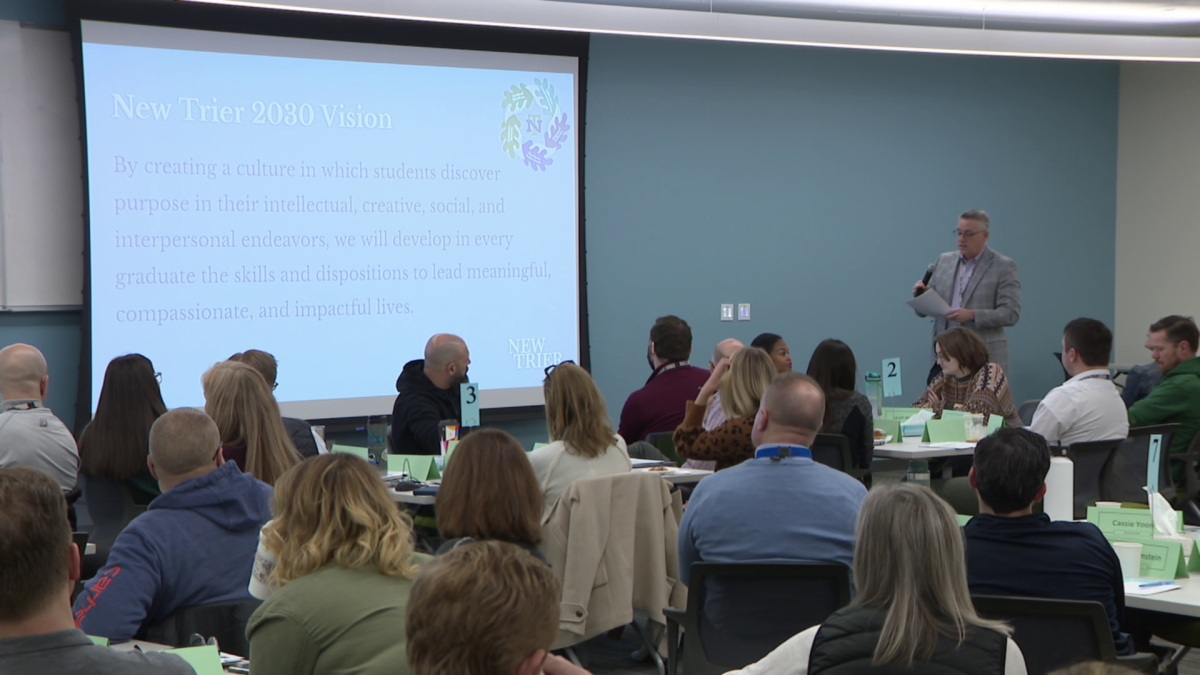With the support of a new committee, New Trier High School is developing ways to make the block schedule more flexible and individualized for students in the future.
The work of the new Future Programming at New Trier Committee stems from last year’s Best Programming Practices in the Block Schedule Committee, which made recommendations based on research done into programming, scheduling, systems, and structures, seeing what is effective for student learning and opportunities.
In May, the new committee will share a plan with the New Trier Board of Education for the next three to five to ten years. Administrators and staff would then work together to implement the plan.
“The idea of this committee is to come together to look at our current programming in our schedule, to address emerging and future student needs and interests, and create a roadmap to help us achieve that vision of the strategic plan,” Assistant Superintendent for Curriculum and Instruction Peter Tragos said.
The new committee will identify opportunities for students that currently do and do not exist at New Trier that would prepare them for post-high school. They are looking into adding a flexible block, a time for students to access support, pursue a particular interest, or have enrichment opportunities. New Trier has yet to decide on specific programming for a flexible block.
The new committee will take a holistic approach rather than solely focusing on research.
“A holistic approach takes steps back and looks at a wider perspective of perhaps schedules, but also student opportunities, experiences, looking at the holistic four-year experience,” Tragos said.
Ensuring students are supported is just one aspect of the committee’s work. They are also considering how to adapt systems to meet new state requirements, such as career pathways.
“Schools [must] offer opportunities for students to earn an endorsement on their diploma by identifying a career area of interests and then pursuing that through a set of courses, as well as work-based learning experiences or an internship that would culminate in this endorsement,” Tragos, in reference to career pathways, said.
There are seven career pathway endorsements that students can earn, and schools can design pathways that best meet the needs of their students. They must, however, offer students at least one of the seven pathways.
One of the endorsements students can earn is for Human and Public Services, with a subcategory of a future teacher pathway. The six other pathways are Agriculture, Food and Natural Resources, Arts and Communications, Finance and Business Services, Health Sciences and Technology, Information Technology and Manufacturing, Engineering, Technology, and Trades.
Throughout the year, the committee will engage with stakeholders, such as students, parents, and staff, through focus groups and surveys as the committee seeks input on the eventual plan they recommend.
The committee’s goal is not to upend the current schedule, but is to foster a future of structures and programming that provide even more support and opportunities for students.
“It’s a way to optimize that schedule [but] the committee is not seeking to undo [the block] schedule,” Tragos said. “The consistency of bell schedules is really important for students, families and teachers.”







































